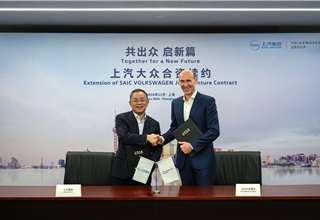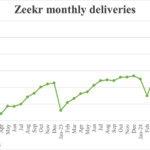SAIC Motor and Volkswagen Group Extend Joint Venture Agreement to 2040
SAIC Motor and Volkswagen Group recently celebrated the 40th anniversary of their joint venture, SAIC Volkswagen, by signing an agreement to extend their partnership until 2040. This long-term commitment reaffirms the strong bond between the two companies and their dedication to the Chinese automotive market.
SAIC Volkswagen, established in 1984 as China’s first passenger car joint venture, has been a pioneer in the industry. The early renewal of the partnership agreement in 2002 demonstrated the success of the collaboration and set the stage for future growth. The latest extension underscores the confidence that both sides have in the joint venture’s achievements and the potential of China’s automotive industry.
Product Innovation for the Chinese Market
In response to the changing landscape of the automotive industry, SAIC Volkswagen plans to develop a range of new models tailored to the Chinese market. This includes the introduction of battery electric vehicles (BEVs) and plug-in hybrid electric vehicles (PHEVs). By 2030, the joint venture aims to launch 18 new models, with 15 specifically designed for the Chinese market.
In the internal combustion engine segment, SAIC Volkswagen is focusing on vehicle intelligence, with recent releases like the Tiguan L Pro and Passat Pro showcasing the latest technology. The upcoming Teramont Pro is set to continue this trend of innovation.
In the new energy vehicle sector, the joint venture is ramping up its efforts with BEV, PHEV, and range-extended electric vehicle (REEV) models. The introduction of the first premium smart BEV model under the AUDI brand in 2025 is a significant milestone. Additionally, compact BEVs developed on the China-specific CMP platform, along with PHEV and REEV models, will expand SAIC Volkswagen’s NEV lineup starting in 2026.
Upgrading Industrial Layout
SAIC Volkswagen is reconfiguring its production capacity to align with its strategic direction towards smart, connected NEV manufacturing. The Shanghai Anting production base, the birthplace of the joint venture, has undergone significant upgrades to become three strategic hubs: an electrification production center, an R&D and innovation center, and an intelligent manufacturing center. These changes aim to enhance efficiency and adaptability in response to market demands.
Advancing the “Zero-Carbon Roadmap”
In line with its sustainability goals, SAIC Volkswagen has upgraded its CSR strategy to the ESG Growth Strategy, focusing on environment, society, and governance. The company has established six strategic pillars to guide its sustainable development efforts. By leveraging technological innovation and intelligent technologies, SAIC Volkswagen is working towards creating “zero environmental impact factories” and aims to reduce CO₂ emissions by 25% by 2030 compared to 2018 levels.
The partnership between SAIC Motor and Volkswagen Group has been a driving force in the Chinese automotive industry for the past 40 years. With a renewed commitment to innovation, sustainability, and market responsiveness, SAIC Volkswagen is poised to continue leading the way in the future of mobility.







